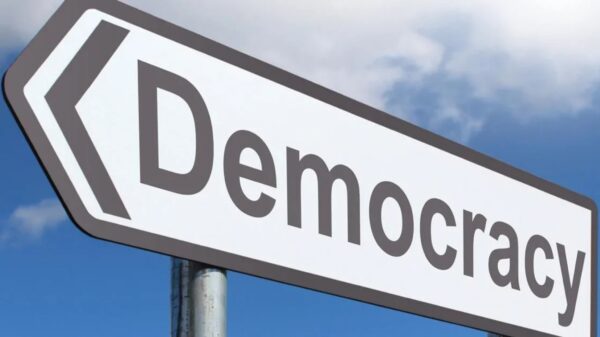The political landscape in Europe has undergone a significant transformation in recent years, marked by the rise of far-right ideologies and the erosion of the political practice known as the cordon sanitaire. The concept refers to a strategy employed by mainstream political parties to isolate and marginalise extremist parties, particularly those on the far-right. However, this approach has faced increasing challenges as right-wing movements have gained ground across the continent. This article examines the shift towards the far-right in various European countries and explores how it relates to the decline of the cordon sanitaire. Furthermore, it discusses the potential implications for the European Union, considering the anti-EU stance of these parties and the rise of more extreme elements within Eastern European far-right movements.
Understanding Cordon Sanitaire
The cordon sanitaire, a term originating from the field of medicine, refers to the practice of isolating and containing a contagious disease. In the political context, it involves establishment parties collectively refusing to cooperate or form alliances with extremist parties, aiming to prevent them from gaining political influence and getting into mainstream politics. This strategy is often employed to maintain democratic values, protect social cohesion, and prevent the normalisation of extremist ideologies.
The Shift in European Countries
Germany, often seen as a stronghold of stability in Europe, experienced a notable milestone when the far-right Alternative for Germany (AfD) party won its first governing post on a district council in Thuringia. Worringly, AfdD currently tops the polls in every former East German state. Despite the fact that 65% of voters think AfD is a threat to democracy, AfD has managed to capitalise on discontent with established parties, particularly regarding immigration and identity issues.
Spain, regarded as one of Europe’s last left-wing bastions and once considered to be immune to far-right politics due to its recent history, faced a significant setback as the ruling left-wing alliance led by Prime Minister Pedro Sanchez suffered defeat in local and regional elections. The far-right Vox party emerged as a major political force, fuelled by its strong stance against immigration, nationalism, and anti-feminist rhetoric. In another instance of the erosion of cordon sanitaire, Vox is likely to form a government with centre-right Partido Popular in the next general election.
Hungary, under the leadership of Prime Minister Viktor Orban, has served as a clear example of the right-wing shift in Europe. Orban’s right-wing nationalist Fidesz party has adopted an “illiberal democracy” model, promoting xenophobia, anti-refugee sentiment, and challenging democratic norms. Orban’s party has implemented controversial policies, such as restrictions on media freedom and judicial independence, while cultivating an anti-EU stance and strengthening ties with illiberal regimes such as Russia.
In Italy, the far-right Brothers of Italy party, led by Giorgia Meloni, has gained prominence with its nationalist and populist agenda. Rooted in the country’s fascist past, the party appeals to conservative and traditional values, advocating for stricter immigration policies, Euroscepticism, and protectionist economic measures. Meloni’s party has capitalised on concerns over national identity and security, particularly in the context of migration flows.
Sweden, known for its liberal policies, recently witnessed the rise of the right-wing populist Sweden Democrats, whose platform centres around immigration restriction, national identity, and law and order. Despite controversies surrounding its early association with far-right groups, the SD has successfully rebranded itself as a more mainstream party and broke cordon sanitaire in the 2022 elections, appealing to voters disillusioned with traditional politics and concerns over integration.
Finland, another country often associated with progressive values, experienced a political shift as the right-wing populist Finns Party entered the government as part of a four-party alliance in the 2023 general elections, advocating for a paradigm shift in migration policies. The party’s rise has been fuelled by concerns over national sovereignty, immigration, and the perceived failure of traditional parties to address these issues effectively.
Slovakia has seen the rise of the far-right People’s Party Our Slovakia, led by Marian Kotleba. Known for his radical neo-Nazi views and targeting marginalised groups, Kotleba has garnered support among disenchanted voters. LSNS gained seats in the Slovak National Council and is expected to make further gains in the upcoming elections.
Romania experienced the emergence of the Alliance for the Unity of Romanians (AUR), a far-right party with nationalist and Christian fundamentalist elements. AUR combines unionist discourse, advocating for the unification of Romania and neighboring Moldova, with conservative positions on social issues. The party’s rise can be attributed to frustration with political elites, economic disparities, and nationalist sentiments.
Bulgaria has seen the rise of the Revival party, a far-right group known for its pro-Russian stance, anti-Western rhetoric, and calls for renegotiating the country’s membership in the European Union and NATO. The party has tapped into public discontent with corruption, socioeconomic challenges, and perceived threats to national sovereignty.
Belgium has not been immune to the rise of far-right ideologies, with the far-right nationalist party, Vlaams Belang, gaining significant traction in Dutch-speaking Flanders. Vlaams Belang focuses on regionalist sentiments, anti-immigration rhetoric, and calls for stricter border controls. The party has tapped into public concerns over cultural identity, national sovereignty, and perceived threats to Flemish interests. Its popularity has grown steadily, making it the dominant force in the region. The rise of Vlaams Belang poses challenges to Belgium’s multicultural fabric and raises questions about the future of interethnic and intercultural harmony in the country, which could even lead to the country’s break up in the near future.
Portugal, known for its proud antifascist history, has also witnessed the creeping success of the far-right Chega party. Chega has gained support through its leader’s attempts to demonise minority groups, controversial statements regarding race and multiculturalism, and nostalgia for the Salazar dictatorship in the 20th century. The party’s rise represents a challenge to Portugal’s democratic values and raises concerns about the resilience of antifascist ideals.
France experienced a surge in far-right support as Marine Le Pen’s National Rally party made significant gains in parliamentary elections, becoming the largest far-right group in any French parliament since World War II. Le Pen’s party has capitalised on anti-immigrant sentiment, nationalist rhetoric, and strongly Eurosceptic views, presenting a challenge to the country’s traditional political landscape. Moreover, with current president Emmanuel Macron ineligible for a third term and the popularity of his policies dwindling, a National Rally victory looks possible in 2027.
Austria, with its Freedom Party (FPÖ), has a long history of far-right movements. The FPÖ, founded in 1956, has been known for its controversial past and pro-Moscow views. The party has consistently polled strongly, challenging the centre-right and centre-left parties in the country. Currently, the FPÖ’s robust 28% in the polls places it well ahead of the second place SPÖ at 23%.
Poland, a country with one of the most pro-EU electorates in the bloc, has experienced a surge in right-wing populist movements, in the form of the Law and Justice Party (PiS) which rose to power in 2015. PiS has pursued nationalist policies, including controversial judicial reforms and media restrictions, which have raised concerns about the erosion of democratic norms and the rule of law. Another significant player on the far-right spectrum is the Confederation party, known for its ultra-nationalist and anti-establishment stance. Confederation has gained support by promoting a radical conservative agenda, including opposition to LGBTQ+ rights and advocating for a return to traditional values. The influence of these far-right parties in Poland has sparked debates about the country’s trajectory, raising concerns about the erosion of democratic values, minority rights, and social progress.
The Future of the EU in Peril
The growing influence of far-right parties across Europe poses significant consequences for the European Union. These parties often promote anti-EU rhetoric, advocating for nationalist and protectionist policies that challenge the principles of European integration and cooperation. The rise of far-right movements in multiple member states can create internal divisions within the EU and complicate decision-making processes, hindering efforts to address common challenges such as migration, climate change, and economic integration.
Furthermore, the anti-EU stance of far-right parties can undermine the sense of solidarity and shared values that underpin the European project. The rise of nationalist ideologies and the erosion of democratic norms in some countries pose a threat to the principles of democracy, human rights, and the rule of law that form the foundation of the EU. It is crucial for the EU to respond proactively by reaffirming its commitment to these principles, addressing the socio-economic challenges, strengthening democratic institutions, promoting social cohesion, and engaging in constructive dialogue with member states to address the concerns and grievances that have fuelled the rise of far-right movements. However, it is important to acknowledge that any kind of involvement in a member state’s politics may be seen as an intervention and has the potential to further escalate anti-EU rhetoric, only strengthening the populist parties. Consequently, potential responses should aim to gain the support of at least a qualified majority of the other member states, which would increase the legitimacy of the actions taken by the EU.
For European countries, the future is full of challenges. Apart from the aforementioned issues, problems such as an aging demographic pyramid and rising geopolitical tensions will require effective policies and competent governance to solve. In an environment like this, the EU cannot afford to spend time and political capital on mediating internal divisions. Europe’s member states must use their shared values to develop a response to these challenges together. The future of the continent depends on it.















